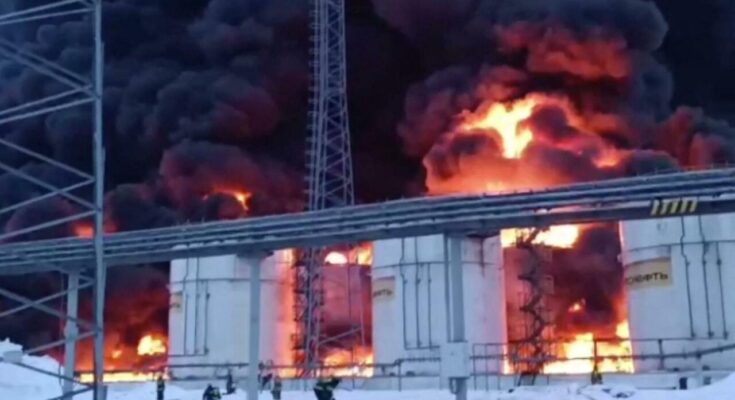That sanctions Trump’s fight against the Russian oil companies, Rosneft and Lukoil, will take effect from tomorrow, November 21, and could completely change the course of the war. Situation in Russia This is already very complicated: Ukraine’s strategy of bombing oil refineries to shut them down has proven fruitful and Russia’s largest oil importers, such as China and India, have reduced oil inflows to avoid possible repercussions or additional sanctions from the United States. Compared to all other economic measures implemented from February 24, 2022 to today, this action could truly be a turning point for the invasion of Ukraine. Also because if oil sales fall, the money to finance economic wars also falls.
US sanctions
Donald Trump, hoping to resolve the war, sanctioned two major Russian oil companies, Rosneft and Lukoil. The impact was already visible, even before it was implemented. Canonical buyers got scared beforehand and blocked inflows from Russia. Production of barrels and barrels of crude oil has ground to a halt in the East China Sea and Yellow Sea, companies Sinopec and PetroChina have canceled 45% of scheduled deliveries, and five Indian oil refineries, normally responsible for purchasing about 65% of total oil exports by sea from Moscow, have suspended imports in December. In October, the country shipped about 3.6 million barrels of oil per day, but now, even as winter approaches, that number has fallen to 3 million barrels per day, according to Bloomberg. In 2021 and 2022 the average delivery will be 4.8-5 million barrels per day. And the sanctions haven’t even officially started yet.
Attack on refinery
Russia’s situation is further complicated by continuous attacks on refineries carried out by the Ukrainian Army. Russia’s oil industry is under pressure and refining capacity has fallen drastically in recent months. Since August, Kiev’s offensive strategy has focused on low-cost drone attacks on refineries and energy transport infrastructure within Russia’s borders, even thousands of km from Ukraine, leaving them unusable. If in July Russia was able to process around 5.4 million barrels per day, then at the end of October there was a decrease of around 10%, so Moscow now has to draw on reserves accumulated over the years. According to Novaya Gazeta, attacks in November could be reduced by as much as 15%.
Oil revenues plummeted
The most immediate consequence, at least in the short term, is that inflows to state coffers also declined: revenues from oil and gas fell by 21% between January and October compared to the same period the previous year, due to falling prices and sanctions. In absolute terms, the Treasury is expected to lose €21.3 billion in revenue in the first 10 months of this year. All that money should have been invested in the arms industry, to finance the invasion of Ukraine. If Russia is unable to sell oil, the economic losses are enormous: if supplies are limited, we will have to withdraw it from somewhere. And for Western countries, the hope is that the war economy remains open.
The consequences
If production and sales decrease, budget revenues also decrease. Oil producers, who may already have crude oil or not have suffered damage to their refineries from the Russian attack, do not know where to invest their oil, which is still unsold. The impact not only impacts exports, but also the domestic market. Gasoline shortages cause prices to rise, and this factor, when combined with others, can lead to a fall in the ruble, even in a short period of time. Moreover, currency devaluation could contribute to a new and further wave of inflation and greater pressure on the civil economy, which would put Putin in serious trouble.
© ALL RIGHTS RESERVED



